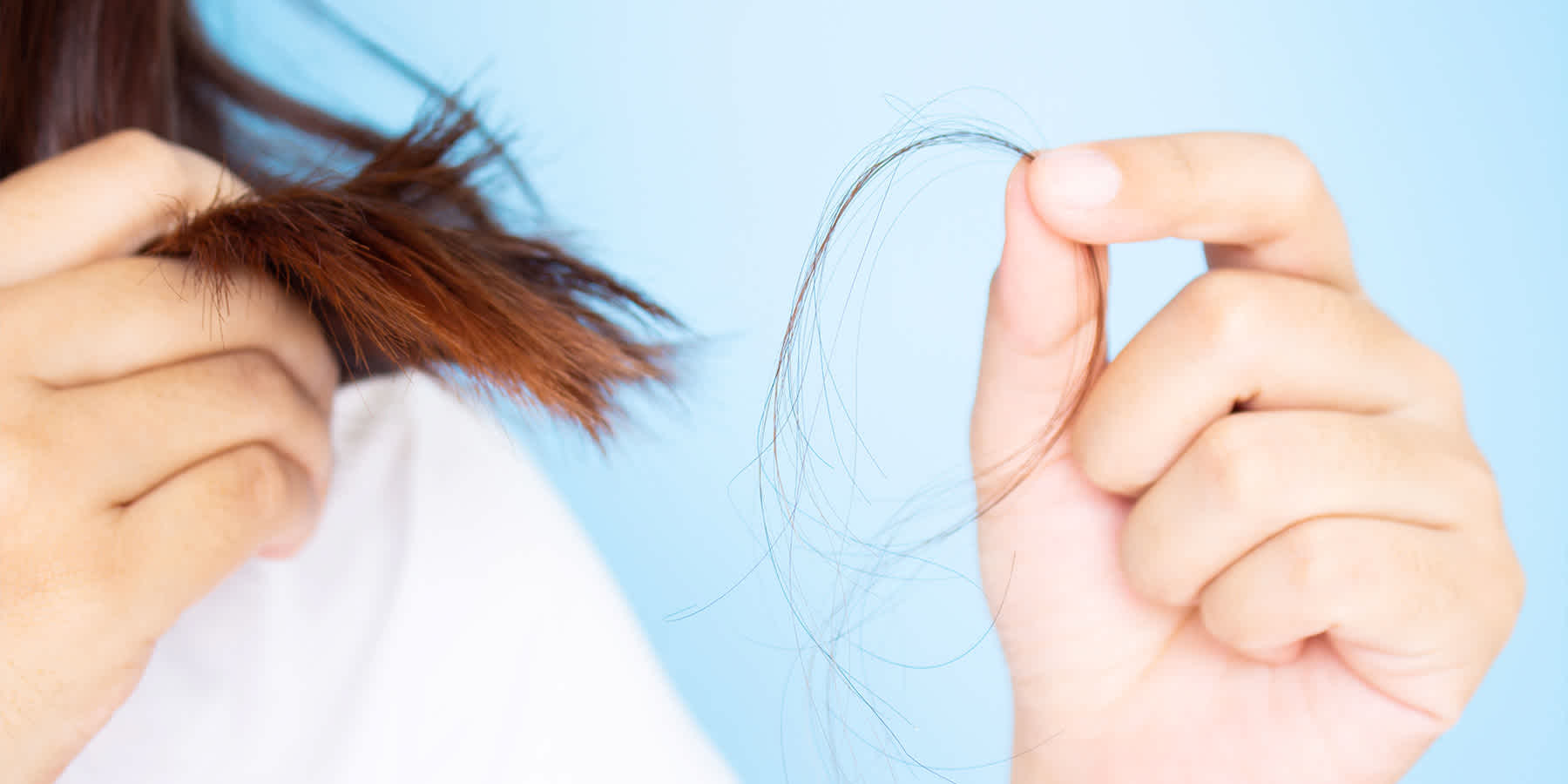
Benefits of vitamin B12 for your hair
Medically reviewed on May 17, 2022 by Jordan Stachel, M.S., RDN, CPT. To give you technically accurate, evidence-based information, content published on the Everlywell blog is reviewed by credentialed professionals with expertise in medical and bioscience fields.
Table of contents
- How does vitamin B12 help your hair?
- Which foods contain vitamin B12?
- How much B12 do you need for overall health?
- FAQs about vitamins and hair
- Try Everlywell B12 Vitamins
- Related content
Did you know that there are 13 essential vitamins your body needs for maximum health and wellness [1]? Of these must-haves, only four are fat-soluble, meaning the body can store them within the fat cells when taken and/or consumed in excess. The remaining nine vitamins are water-soluble, meaning the body excretes any unused leftovers.
Vitamin B12 belongs to the water-soluble group. Thus, you need to consume the right amount of B12 daily if you want to avoid a vitamin B12 deficiency.
This is important as B12 is a B complex vitamin you don’t want to be deficient in. That’s because vitamin B12 plays an important role in many of the body’s functions, including healthy hair growth.
Curious to learn more about this vitamin? This guide will walk you through vitamin B12 benefits for hair and ways you can determine whether you’re getting enough daily intake. (To get enough B12 the easy way, try the B12 vitamin supplements from Everlywell.)
How does vitamin B12 help your hair?
To understand why vitamin B12 is important for hair health, let’s look at how it works in the body and how it impacts hair [2]:
- Red blood cell creation – First, vitamin B12 helps the body produce the red blood cells it needs. The essential vitamin also ensures these cells are the proper shape and size to transport oxygen throughout the body.
- Oxygen distribution – Healthy red blood cells carry oxygen everywhere it’s needed in the body, including to hair follicles. Hair follicles need this oxygen to stimulate the growth of hair.
Without enough vitamin B12 in one’s daily diet, hair follicles might not receive the oxygen and nutrients they need to grow thicker hair.
Which foods contain vitamin B12?
Since vitamin B12 is water-soluble, the body needs a fresh supply daily. If you want to support hair health (as well as your overall health), it’s important to make sure you’re eating a diet that includes vitamin B12-rich foods and/or is supplemented with a dietary supplement.
Some of the best dietary sources of B12 include [3]:
- Beef
- Turkey
- Salmon, tuna, and clams
- Eggs
- Milk, yogurt, and cheese
- Nutritional yeast
- Fortified breakfast cereals
- Bananas and strawberries
- Spinach
- Kidney beans
Due to dietary restrictions, vegetarians and vegans are at risk of low levels of B12. If you follow one of these diets, you may want to get your vitamin B12 levels checked, especially if you’ve noticed poor hair growth, hair thinning, or increased hair loss.
How much B12 do you need for overall health?
You may be wondering how much vitamin B12 a person over 65 should take. The answer is the ideal amount of B12 varies depending on factors like age. The recommended dietary allowance (RDA) range is as follows [3]:
- Ages 14–18, both male and female – 2.4 mcg
- Ages 19+, both male and female – 2.4 mcg
- Pregnant individuals – Between 2.6–2.8 mcg
Again, individual needs may differ, and vitamin B12 requirements in pregnancy are very important, so it’s best to speak with a healthcare professional about the exact amount of B12 you need for optimal health.
FAQs about vitamins and hair
When it comes to vitamins and hair, B12 isn’t the only one you want to know about. Several vitamins work in conjunction with B12 to maintain healthy, strong, and shiny hair. In fact, the full beginning of the vitamin alphabet—A, B, C, D, and E—are all important for healthy hair growth and retention [4].
However, B12 plays a specific role in the growth of new hair. This has led to some misconceptions about how B12 and hair loss are linked. Two common questions about B12 and hair include:
Can vitamin B12 help with hair loss?
First, vitamin B12 supplementation cannot stop hair loss and hair thinning from happening. Therefore, adding more B12 to your diet won’t prevent you from losing your hair [4]. However, one of the B12 deficiency signs is that hair loss becomes apparent faster. This occurs because:
- New red blood cells aren’t forming
- A lack of new cells prevents oxygen transfer to your hair follicles
- Without oxygen, new hair cannot replace hair that falls out naturally
So, while a lack of B12 makes hair loss more visible, consuming more B12 won’t stop hair loss.
Can vitamin B12 regrow hair?
In that same vein, adding vitamin B12 supplementation, like dietary supplements, to your routine won’t suddenly make hair grow back. However, vitamin B12 may give you the appearance of fuller and thicker hair because the increase in oxygen to hair follicles can help stimulate the replacement of lost strands.
Vitamin B12 may also help give your hair an overall healthier appearance since intake of enough B12 is responsible for stronger hair shafts.
Try Everlywell B12 Vitamins
Getting adequate amounts of vitamin B12 to support your hair health is easy with Everlywell vitamin B12 supplements. The B12 tablets are vegan and non-GMO, and each bottle comes with a 30-day supply.
Related content
Does vitamin B12 give you energy?
References
1. Vitamins and Minerals for Older Adults. National Institutes of Health. URL. Accessed May 17, 2022.
2. Ryan-Harshman M, Aldoori W. Vitamin B12 and health. Can Fam Physician. 2008;54(4):536-541.
3. Vitamin B12. National Institutes of Health. URL. Accessed May 17, 2022.
4. Almohanna HM, Ahmed AA, Tsatalis JP, Tosti A. The Role of Vitamins and Minerals in Hair Loss: A Review. Dermatol Ther (Heidelb). 2019;9(1):51-70.